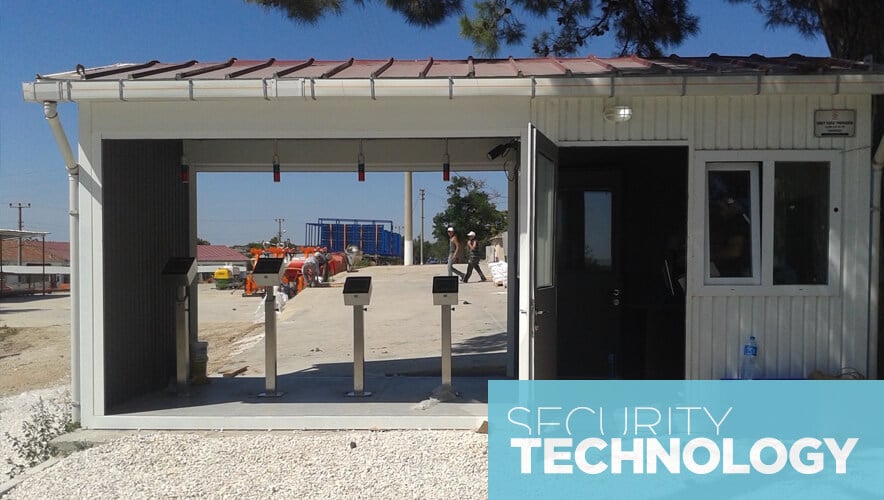Time and Attendance Systems Call on Security
One of Europe’s largest fruit and vegetable juice providers, Turkey’s Anadolu Etap, faced serious problems with calculating payroll. Each harvest season, thousands of farm workers head to the company’s seven large fields to pick the crops. It’s the workforce’s fluid nature that causes a major problem for Anadolu Etap.
New laborers arrive daily looking for work. Once hired, they might work a few days, leave for a week, and then return ready to work again. Maintaining an accurate payroll was a nightmare.
Company officials turned to their security integrator, Istanbul-based Ergosis Systems, for help in replacing the traditional card system. Ergosis studied the use of smart access cards, but found authorizing, printing, distributing, and tracking cards for thousands of on-and-off workers was still a human resources disaster. And it didn’t take long for employees figure out buddy punching.
Ergosis next studied a fingerprint system. But the routine cuts and scars on workers’ fingers and hands resulted in inaccurate identification and the need for frequent system re-enrollments. Also, some employees wear special environmental suits making a contactless system a better choice.
Glasses, headwear, new hairstyles, mustaches, and beards affected the accuracy of facial recognition technology. Finally, the integrator, Görkem Acarlar, suggested an iris-based system.
“Whatever we chose, the system had to be easy to operate because most of these workers are not technologically oriented,” Acarlar said. “During our study, the employees caught on in no time. The system was also very accurate.”
Yet there were still challenges to overcome. Located outdoors, the iris readers were subject to bright sunlight and wide temperature extremes. Electrical blackouts were frequent, making it difficult to get payroll reports to the company’s Turkish headquarters.
Three-sided shelters proved effective in blocking the sun. Heaters protect the readers on those mornings with below freezing temperatures. An uninterruptable power supply provides power during blackouts. And wireless wide area networks installed in each field transmit payroll data to satellites and then on to Anadolu Etap’s human resources system.
During the registration process, cameras captured more than 240 unique characteristics of each employee’s iris, the colored part of the eye surrounding the pupil. The data was turned into small 512K templates stored in onsite computers. These encrypted files can’t be reverse engineered or reconstituted to produce any sort of image. Registration, including training on how to use the system, took about two minutes per employee. Now, as they arrive at or leave the field, employees need less than two seconds to authenticate their irises.
As employees approach the readers, proximity sensors activate the equipment. Mirror-assisted alignment and audio prompts help adjust the height to capture information from workers of varying heights. Once authenticated, the worker’s name and ID, time, and date are displayed on a 4.3-inch color LCD.
Iris recognition is well suited to applications such as Anadolu Etap’s. A subject’s left and right iris are as different from each other as they are from any other individual’s. Even identical twins have different iris patterns. Also, the iris is fully formed during a person’s first year and remains unchanged through life, eliminating the need for re-enrollments. More than 10,000 laborers are enrolled in the Turkish system, with more being added daily.
“Once enrolled, they can leave whenever they want, knowing they’ll be immediately recognized when they return,” Acarlar said.
Egosis completed the system two years ago, but regularly updates and adds readers as needed. The company is considering adding new iris-based systems at its other facilities.
Half a world away in El Salvador, similar challenges faced Ingenio Azucarero Injiboa, one of the country’s largest mills processing sugar cane into raw sugar. Refineries around the world receive the final product.
The mill often operates around the clock during the six-month harvesting and processing season, requiring thousands of employees. For years, the mill used standard time clocks and cards. But long queues formed as hundreds of employees changed shifts. Mill officials sought help from their security integrator, El Salvador-based Screen Check. Both fingerprint and facial recognition systems were tested. As with the Turkish farms, there was a frequent need for re-enrollment using these systems.
Ingenio Azucarero Injiboa tested an iris recognition system and it worked. Faucy Brand, Screen Check’s chief executive officer, said accuracy was an important factor in the mill’s choice of technology. Authentication errors for either a false accept or false reject cost both time and money.
During enrollment, mill employees could stand 10 to 14 inches away from the iris camera. The iris camera automatically accommodates for employees wearing glasses or contact lenses without compromising system accuracy. The mill’s system provides a false accept rate of 1 in 1.2 million.
Brand said the system’s speed eliminated the long lines associated with the punch card time clocks. Mill officials were so happy with the system, they decided to also enroll the administrative, technical, and security personnel.
Joel Moran, the mill’s head of information systems development, said the iris-based time-and-attendance system replaced time cards and badges that were capable of being lost or damaged.
“We now have a very precise time-and-attendance system in place,” Moran said. “It has reduced our payroll processing time and administrative costs and has also completely eliminated time fraud. The result was a quick return on investment.”
The clack of traditional time clock/card systems is being replaced by the quiet operation of biometric-based time-and-attendance systems. No matter if that system is installed in a high-rise office tower, retail operation, manufacturing facility, or government building, the concept comes tested and proven in some of the most remote and challenging environments.
Mohammed Murad is vice president, global development and sales for Cranbury, New Jersey-based Iris ID. For more information, visit irisid.com.
